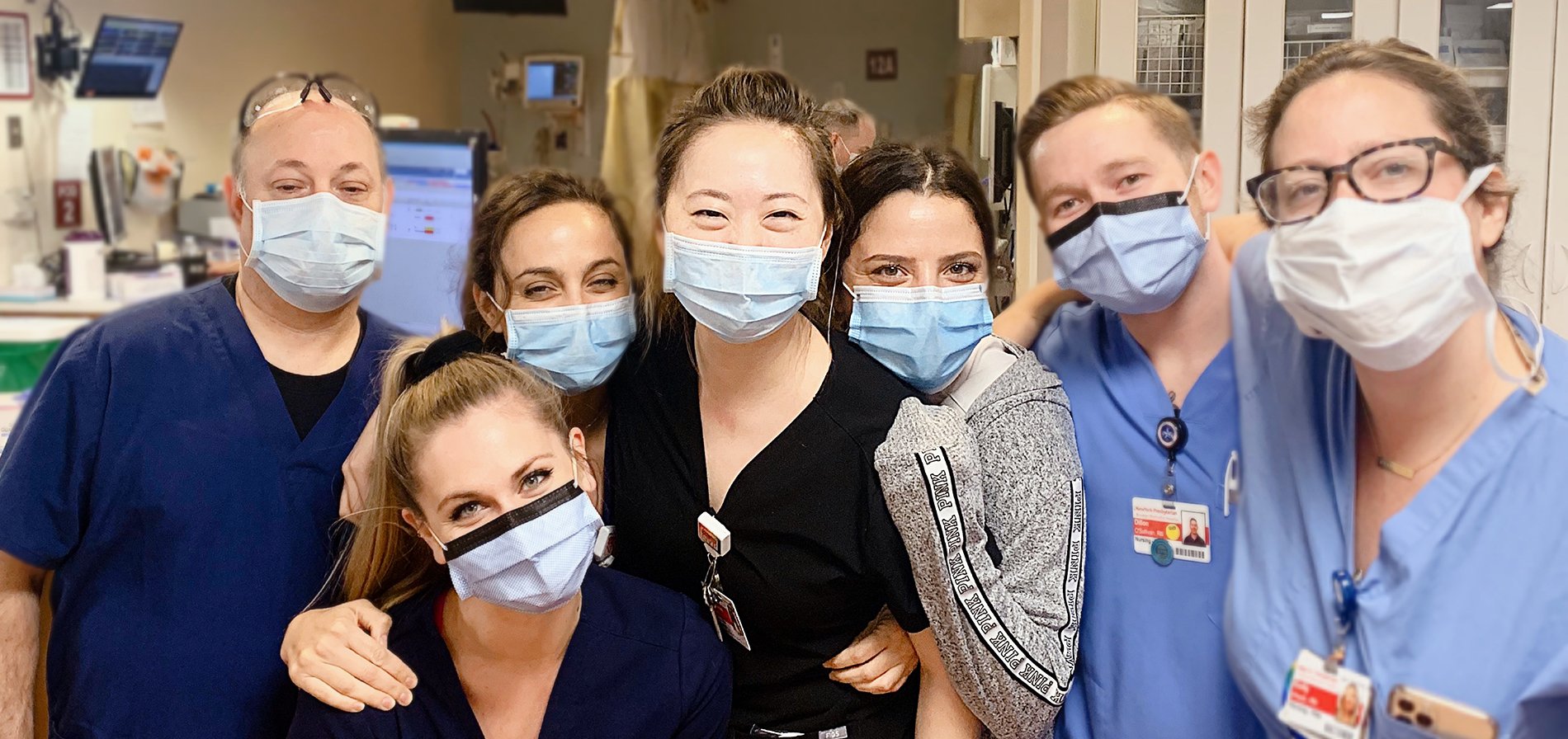“In May and June I felt my whole world tumbling,” said CU Nursing master’s student and nurse manager Stephanie Lee. An iLEAD (Innovation in Leadership and Administration in Nursing Health Care Systems) master’s student, Lee was entering her final course in the specialized track, when coronavirus hit. She didn’t know if she would be able to finish the program or not. Clinicals were up in the air, and graduation did not look promising. The hospital where she worked as Clinical Nurse Manager, based in Brooklyn, was ground zero for COVID-19, and like many hospitals was overwhelmed by patients and struggling. All “extra” initiatives, including affiliation agreements with universities, were on hold. “That affected my ability to complete my capstone project and graduate,” said Lee.
CU Nursing’s master’s program encourages students to take on real-world projects, and frequently those reside within the student’s work environments. “If the institution doesn’t have the bandwidth or won’t allow the affiliation, the student is in a difficult position and must seek alternatives to complete their final project,” said Assistant Dean of CU Nursing’s Graduate Program Peggy Jenkins, PhD, RN, CNE. Because of COVID-19, priorities changed, and affiliation agreements were shelved. Jenkins and Lee got to work creating a project that would fulfill Lee’s requirements and allow her to graduate.
As Lee describes, “Dr. Jenkins was super creative…helping find something that would work. She’s literally been my rock. And if it weren’t for her, I wouldn’t be graduating.”
Since Lee was working in a hot zone for coronavirus at a hospital that was treating thousands of patients, it seemed natural to focus on a joint study about retention and stressors in graduate students in light of COVID-19. Researching the phenomenon of resilience became her passion and her capstone project. “We took a personal perspective on my project. All of the grad students in the program would be leaders one day – going from the bedside to the boardroom. My research looked at how to build resiliency in aspiring leaders.”
While working in the emergency department (ED), she saw how the staff adjusted and qualities that were necessary to handle the crisis. “We did 19 intubations in a single shift and had two refrigerated trucks filled with bodies parked outside the ED,” said Lee. It was overwhelming and terrifying. For Lee, qualities like optimism, a ‘can do’ attitude, internal resolve, a problem-solving mentality, and a support system stood out. Lee learned that “coronavirus brought out the best and worst in all of us.”
“My career in trauma, ICU, and ECMO -- specializing in acute respiratory distress -- prepared me for this pandemic,” said Lee. However, coronavirus was different from anything she had ever experienced. The constant changes, updates in protocols, and rapidly changing recommendations were challenging. “It was truly scary. With little to no effective treatments, and the CDC constantly changing recommendations, our staff experienced increased stress and burnout,” said Lee. “I’ve never seen such resilient and strong nurses. They made it work.” Creating their own support system, including prayer groups, the staff in the ED and PACU pulled together. “You had to be a real strong communicator or the system would fail.”
The possibility of contracting the illness was a real and present danger. Like most front line workers, Lee knew she’d be lucky not to become infected. “I knew exactly when I came down with it. I developed a dry cough at the tail end of my shift and said ‘I think I have it.’” Immediately she called Occupational Health. “I felt super guilty that I wasn’t there for the team,” said Lee, who quarantined at home. After two weeks’, she was allowed back to work. “Every situation was a little different, but my hospital was phenomenal and provided housing and daycare for the staff,” said Lee. In many cases, staff decided to separate from their families for two months, and some chose to send families and children elsewhere.
For Lee, the experience of handling COVID-19 made her battle-tested and weary. It also provided a unique opportunity to analyze the inner workings of herself and fellow nurses and what made them better qualified to face a pandemic. She presented her capstone project virtually July 21 to faculty. “It was fascinating and provided a peek into what our nurses were and are dealing with during this pandemic. The stresses and what makes them able to cope,” said Jenkins.
Lee officially graduated August 14. “My research on resilience will provide insight for me as a leader and others for years to come,” said Lee, who is grateful to CU Nursing for working with her to see her degree completed. “I don’t think I could have made a better choice of program. The faculty were phenomenal, and I was blown away by the support especially during COVID. It was the best decision I could have made.”

Smiles all around - Stephanie Lee (centered) and the ED Team.



